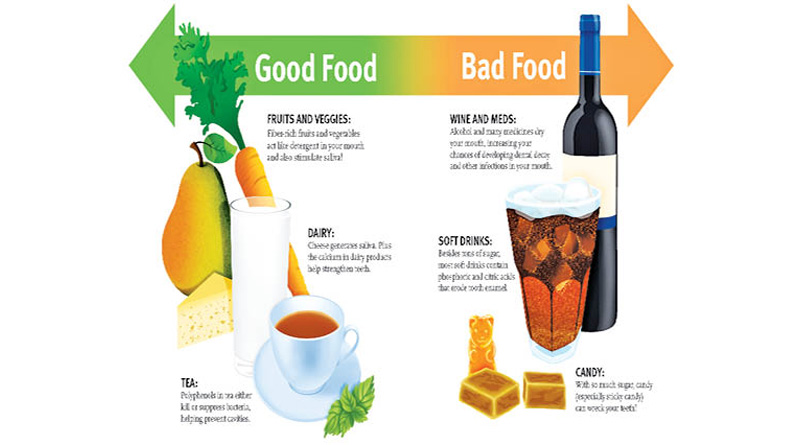In the previous issue, we shared with our readers how gums formed reliable indicators of overall health and provided detailed gum-care insights elucidating correct techniques for brushing and flossing.
In addition to the common string-floss, one could also try flossing with water! The Water Flosser is an oral device that delivers a steady jet-stream of water to flush out food particles, bacteria and plaque from under the gums and between teeth, areas inaccessible to a toothbrush. Water Flossing is 50% more effective than regular floss.
Mouthwash is a high fluoride content liquid. It is recommended for use at night, half an hour post brushing. Avoid consuming anything thereafter (except water). Not advisable for children under six years.
Crucial Tips For Gum Care:
- Drink plenty of water. Keep your mouth hydrated.
- Avoid carbonated drinks. Avoid especially ‘sipping’ on these through the day, to reduce exposure. Drink water before soft-drinks or after a sweet treat to wash away the sugar and bacteria and reduce the risk of acid formation.
- Chewing on Xylitol gums (sugar-free chewing gums) stimulates salivary glands, increasing secretion of saliva, which is the natural cleansing agent for teeth. It also prevents or cures salivary duct stone formation.
- Replace your missing teeth. Teeth have a natural tendency to drift into spaces. Losing a tooth and not replacing it leads to the adjoining teeth moving into that space, opening up gaps between teeth, causing food to get stuck and bone-loss occurrence. This leads to poor gum conditions.
- Increase intake of ‘detergent foods’ or foods rich in fibre and low in sugar (apple, celery sticks, raw carrots, cheese, nuts and even popcorn!). This type of food gives good exercise to the gums and also stimulates the saliva flow, reducing incidences of caries.
- Having milk with food is an ideal practice as it neutralizes the acid and cheese is an ideal dessert due to its high detergent effect!
- Ensure to get a professional cleaning done annually/biannually.
Special Tips for Children And Infants:
- Make brushing a fun family event! There are many new products for children making brushing interesting, like musical, electric or flavoured toothbrushes. Musical toothbrushes play nursery rhymes precisely for 2 minutes, the recommended brushing time.
- To clean an infant’s mouth, use sterile gauze with distilled water/glycerine.
- Avoid bottle feeding at night with sugary juice/ sweet milk, it increases chances of nursing bottle caries. If unavoidable, clean the mouth post bottle feeding.
- Avoid showing a fear of dentists or narrating negative experiences with a dentist in front of children.
Pregnant women are recommended to get a dental clean-up done during the first trimester, followed up with a second round in the second. Avoid dental treatments in the third trimester. If you have sore, bleeding, swollen gums, increase your intake of natural foods high in Vitamin C. Ask your gynaecologist for Vitamin C supplements.
Good dental health call for 90% self-care and 10% professional help! All you need to do is consistently follow a systematic regimen. It’s never too late to flash a set of your dazzling 32 teeth!
Mail your queries at dr.nilofervevai@gmail.com or call for consultations
at: 9987333281
